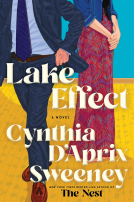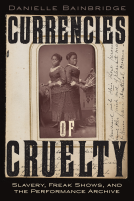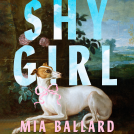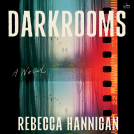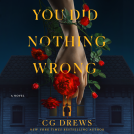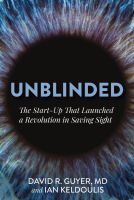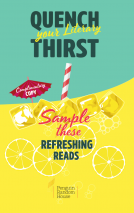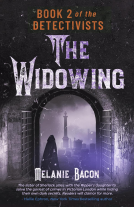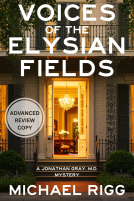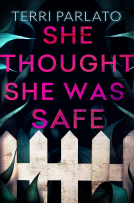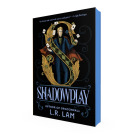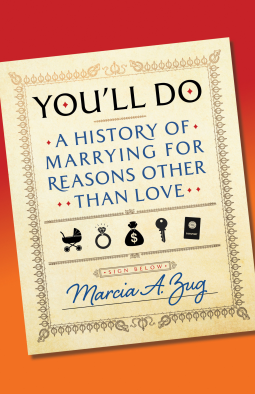
You'll Do
A History of Marrying for Reasons Other Than Love
by Marcia A. Zug
This title was previously available on NetGalley and is now archived.
Send NetGalley books directly to your Kindle or Kindle app
1
To read on a Kindle or Kindle app, please add kindle@netgalley.com as an approved email address to receive files in your Amazon account. Click here for step-by-step instructions.
2
Also find your Kindle email address within your Amazon account, and enter it here.
Pub Date Jan 09 2024 | Archive Date Nov 17 2023
Talking about this book? Use #YoullDo #NetGalley. More hashtag tips!
Description
Perfect for fans of Rebecca Solnit and Rebecca Traister
Americans hold marriage in such high esteem that we push people toward it, reward them for taking part in it, and fetishize its benefits to the point that we routinely ignore or excuse bad behavior and societal ills in the name of protecting and promoting it.
In eras of slavery and segregation, Blacks sometimes gained white legal status through marriage.
Laws have been designed to encourage people to marry so that certain societal benefits could be achieved: the population would increase, women would have financial security, children would be cared for, and immigrants would have familial connections.
As late as the Great Depression, poor young women were encouraged to marry aged Civil War veterans for lifetime pensions.
The widely overlooked problem with this tradition is that individuals and society have relied on marriage to address or dismiss a range of injustices and inequities, from gender- and race-based discrimination, sexual violence, and predation to unequal financial treatment.
One of the most persuasive arguments against women's right to vote was that marrying and influencing their husband's choices was just as meaningful, if not better.
Through revealing storytelling, Zug builds a compelling case that when marriage is touted as “the solution” to such problems, it absolves the government, and society, of the responsibility for directly addressing them.
Advance Praise
"A fresh, engaging social history." — Kirkus Reviews
"An engrossing account of why individuals have married for reasons other than love and often made that work, but Zug also warns of the dangers to our most vulnerable citizens when policy-makers make legal rights and social benefits that should be available to all contingent on marriage."
— Stephanie Coontz, author of Marriage, A History: How Love Conquered Marriage
"Zug's wry, clear-eyed history of American marriage, in all its unromantic glory, shines a new light on an old institution. An absolute pleasure to read." — Liz Scheier, author of Never Simple
“You'll Do is a wonderfully fun romp through the history of why people marry. Zug weaves together colonial incest laws, her great-aunt Rosie's marriage designed to help a man escape the Nazis, Saturday Night Live, Jane Austen, contemporary welfare policy -- and more -- to tell the story of the marital bargain. While the common assumption is that people should only marry for love, Zug explains why so many people do not -- and why that decision makes sense.”
— Naomi Cahn, author of Marriage Markets
“The best books are those that prompt you to reconsider long-held assumptions about things we take for granted, and Marcia Zug’s You’ll Do fits that definition to a tee. In an illuminating, incisive, clever, and, at times, maddening study, Zug identifies the myriad ways in which our laws and norms both treat marriage as means to an end and undervalue the very different legitimate ends that marriage can serve. As Zug persuasively demonstrates, we’ve become too accustomed to viewing marriage as a means of apportioning rights and benefits in our society — at great cost to both the other values marriage can serve and the other ways we can and should confer those rights and benefits.” — Stephen Vladeck, author of The Shadow Docket
Available Editions
| EDITION | Other Format |
| ISBN | 9781586423742 |
| PRICE | $29.95 (USD) |
| PAGES | 352 |
Available on NetGalley
Average rating from 50 members
Featured Reviews
 Emily D, Reviewer
Emily D, Reviewer
This book was informative, clear and enraging. The institution of marriage is something that is romanticised and expected as some kind of natural stage of life, as certain as birth or death. This book gave me much additional historical context on marriage through an American lens (not too dissimilar from a European) and a linear exploration of reasons, historically, that people chose to marry that did not involve 'love' and why maybe it wasn't such a bad idea!
This was brilliant- well worth a read!
 Media/Journalist 1238810
Media/Journalist 1238810
A wonderful surprise. An absolutely enjoyable book, which I can only fault for not specifying from the title that the investigation focuses exclusively on the United States (a detail abundantly clarified on the back cover, anyhow). It would be truly interesting if the author gave us a broader study that also includes Europe in the future (or if some other historian were inspired by her book for a similar research), because I'm convinced an equally enjoyable product would emerge.
The text is easy to read: it's well-researched but also discursive, divided into short thematic sub-chapters that make reading and consulting it straightforward. It reaches up to our times (roughly up to the Trump era and Covid-19), without current events being predominant; on the other hand, it's full of curious and delightful anecdotes from the past. My absolute favorite is the one related to marriages of interest between Native American women and white settlers: a real surprise that, right from the first few pages, lets you know that the reading will be able to amaze (and perhaps also shake up some convictions. About History, but perhaps also about the sense of marriage in general?).
 Reviewer 1254659
Reviewer 1254659
After having read Marcia Zug's other book, Buying a Bride, I was looking forward to reading her latest foray into the history of marriage. And it did not disappoint!
Zug has a great and relatable reading style that makes it a breezy read even though you are learning lots. I had a few WTH moments with the examples she related, and that made it all the more enjoyable. Especially since she managed to pick poignant examples that underscored her point whilst also being entertaining and engaging.
I also quite enjoyed throughout her relating her topic to modern instances of the same factor contributing to marriage decisions to show that not as much has changed as we had thought. This way of showing continuity is also one of the best ways to show how we need a discussion around marriage and how modern values sometimes are ham-strung by a law that can't accommodate them.
**Book provided by Netgalley for an honest review***
 catherine h, Reviewer
catherine h, Reviewer
Marriage is so fraught with issues.. This book presents every reason for and against marriage mankind has given thought to, The only one missing is the one I heard from a professor decades ago, was two cavemen fighting over who the helped in the creation of a baby a cave woman created! Lol. It was interesting, and entertaining, to hear the many schemes men women, governments, cultures, etc,,, have thought of to try and equalize relationships between men, women. Ms. Zug did a very thorough job of research to include so much in one book, The book is well written and is really hard to put down once started. A class should be devoted to the study of marriage in high school,
I was never more excited to read a book. I "joke" (but not really) about my own marriage being simply about resources. He had health insurance and I didn't. I was a single mother and needed some help watching the kids. He can't manage to keep himself alive and will eat rotten food if I am not there to check it.
So we are married.
We like each other and get along fine but I am not about to marry a man who can't provide simply for "love."
Marriage has always been about those resources. Mormon polygamy was about securing your own home and place in the world (for women at least.). Jane Richards and Belle London were friends who discussed this regularly. It certainly wasn't about love.
I loved learning that age of consent laws were to prevent male gold diggers!
Also Social Security was intended for men. Of course it was! We marry them to get those benefits. No benefits for single women.
There is just so much here I can't even talk about it, but it is eye opening!
Of course the title of this book made me laugh, but the content of it really kept my interest. It's a history of the legal issues around marriage. Topics range from government idealization of marriage over singledom, gold diggers (both female and male), bigamy, civil war veterans pensions, immigration law, divorce, immorality, age of consent to children born out of wedlock. The author took very technical legal topics and made them relatable with good examples from case law. Overall a very enjoyable book.
 Reviewer 1266751
Reviewer 1266751
The title of this one caught my attention. The resignation that the title evokes is what is explored in this book, that is, h0w people though American history have found themselves getting married for any other reason than love. Sometimes it is to get more land from the government, sometimes marriage gets people better treatment in the judicial system (unfortunately), no matter how you slice it, marriage has had many benefits besides possibly living with the love of your life forever.
I liked how exhaustive that this book. It covers the cultural and political reasons why marriage is favorable to remaining celibate or single. It invited me to reevaluate my thoughts on this institution. After all, isn't love and companionship enough? This book proves that no, marriage leads to better outcomes in various instances, often due to bias in people's perceptions of relationships.
In all, I recommend this for people looking for interesting works of social history and sociology.
 Reviewer 1155610
Reviewer 1155610
An interesting overview of reasons other than love that people would marry. The book looks mostly at the United States and includes things such as the need for a woman to be financially secure, as well as the government benefits that come to married couples that single people miss out on. As a single woman, I know that I am blessed to live in a time when not only am I not viewed with suspicion, but that I can also provide well for myself without a spouse, though there definitely ways I don't qualify for the support that married people and families do. I live in Canada, so aspects of the book don't apply or are different such as the rules around support for partners if a common-law relationship ends, but I enjoyed the book all the same.
I received an advanced copy of this book from Netgalley, all opinions are my own.
 Cynthia W, Reviewer
Cynthia W, Reviewer
Why would people get married if they didn't love each other? Turns out, there are MANY reasons! In addition to royal-types marrying to link dynasties and golddiggers marrying for money (which were the reasons I could have named before reading this book) people have married for dozens of reasons which they thought would lead to greater security and happiness. And, now that I know the stories of some of those people, I have much more sympathy for those reasons than I ever would have supposed. (Although maybe not too much sympathy for modern "gold-diggers" who do still hunt in surprisingly up-front ways.) I'm tempted to list some of the most interesting reasons, but I'll save that for you to discover if you read the book.
This is a quick-moving book that covers numerous real-life marriage stories told from newspaper articles and court cases. Although I didn't agree with all of the author's conclusions about the importance of marriage and how governments should support it, I was fascinated by the stories and will certainly think of marriage in a new light.
And - the title? Come on, that's got to be one of the best titles of the year.
 Reviewer 1106878
Reviewer 1106878
I really enjoyed reading the ARC of this book. The author thoughtfully structures the book and uses fascinating anecdotes and images to support her points. Her writing style is really engaging and she balances the tone well. She sensitively handles and reflects on some very heavy topics.
The only thing that I note is that, especially in early chapters, the author uses a lot of examples and quotes from English authors such as Jane Austen or descriptions of English events. Since the book deals with marriage in America, I would have either liked it to be more focused on American sources OR to also use sources from places other than England (France, China, Spain, etc) in order to provide context for American marriage.
What a fun, quirky history! I really appreciated the deep dive into marrying for not-love. I felt like the histories and stories were well researched but the writing wasn't dry. I knew there were a lot of reasons why people would get married but this really explored all of them. Or just about all! An entertaining and informative little book.
When I first met my, now, husband face to face after chatting to him for several months from a distance my initial words were ‘You’ll do’ so naturally the title of this book intrigued and amused me. Glad to report we’re very happily married and not for any of the reasons mentioned within this book.
The book is a truly fascinating and eye opening delve into reasons for marrying which are not love. Obviously I’m not naive but a lot of the content was news to me and the ins and outs of the legalities were fascinating, if not a little depressing at times. As a ‘smug married’ it made for slightly voyeuristic and thank goodness this hasn’t happened to me style viewing but there was a lot of room for examination of human nature, the problems with legalities and the inequalities of a (still) male led world. There was plenty of excellent historical detail and multi national examples and lots of real case studies to add to the well examined and discussed areas up for scrutiny.
An absolutely brilliant read on a subject I haven’t seen up for discussion in such detail before. Definitely recommend.
 Reviewer 1269626
Reviewer 1269626
You’ll Do is a wonderfully in-depth look at why people have gotten married over the years. The majority of the examples are based on cases or relationships in the United States of America.
What I truly appreciated is that the author examines all sides of a reason. They consider the benefits and the drawbacks for men, women, people of color, different socioeconomic statuses, etc.
I truly found this book enlightening and entertaining. There were so many examples and valid points brought out that I was engrossed in reading more.
Trigger Warnings:
I will say that marriage is not all sunshine and rainbows, never has been throughout history. That being said, there are examples of how people have been harmed because of marriage. Murder, domestic violence, child sexual abuse, statutory rape, and rape are all brought up at least once.
 Reviewer 762493
Reviewer 762493
Ah, to hell with it. Five stars.
"You'll Do" is a history of marrying for reasons other than love in the US: money, citizenship, parental rights... Zug has sympathy for those involved and a good ear for relevant details. Why do people choose these marriages? How is marriage a transaction, and why does that transaction make sense, even if it seems odd from the outside? How do mentalities change?
Because marriage is, essentially, a contract, the book often references law and court decisions on marriage disputes - they're very well chosen for impact, nicely explained even to a lay audience such as myself, who is neither a lawyer, nor an American, and Zug knows when to pull back and avoid falling into the trap of hyperbole.
I'm fascinated by the way in which winning some battles (social, legal) led to complications and problems elsewhere down the line (for example, a growing assumption that marriage should be based on love leads to women not being compensated for their efforts at home if a marriage failed, <i>but in previous eras they would have been compensated since marriage was seen as an economical transaction</i>).
I'm also fascinated by the fact that the US seems to attribute magical powers to marriage occasionally, and keep adding benefits to it to encourage it, sometimes backfiring. It's really something to think about, throwing a light on state interference in private lives.
This was a very engaging read. Concepts that I knew of vaguely (the concept of marrying for 'love' is a fairly modern one, for example) were expanded upon and then turned on their heads. The ways in which laws that were originally intended to further women's rights (the common law marriage laws, for example) were upended and instead used to further discrimination against women was infuriating. I also appreciated how the author did not simply look to the history of white women's marriage in America & instead expanded the scope to look at how the institute of marriage was used horrifically against women of colour.
5/5 stars. A very informative and entertaining look into the legal institute of marriage in America, and one I highly recommend.
 Librarian 431790
Librarian 431790
An intriguing, well researched, and informative book that made me learn something more about marriage and how it changed in history.
Excellent and well done.
Highly recommended.
Many thanks to the publisher for this ARC, all opinions are mine
 tina k, Librarian
tina k, Librarian
It has to be said upfront that even though this book is written by a lawyer and talks about laws, it can be read with great pleasure by people without legal background. In her book, Marcia Zug looks at a place of marriage in America and subsequently all the values and benefits society ascribes to marriage. Marcia Zug explains that marriage isn't always a consummation of love, there are many other reasons for people to get married. She is using her family's example as a starting point of her interest in the subject. In early 1930s, her aunt traveled to Poland to marry her friend's brother. She didn't know or love him, her sole purpose was to save his life since their marriage allowed him to escape Poland where as a Jew he most likely would have perished during World War II. That story told at the beginning of the book grabs your attention, and what follows is even more fascinating. With subtle humor and help from many legal cases, Zug looks at many instances when laws governing marriage can serve not only to people's benefit but also to denigrate or discriminate women, unmarried people, non-white people, and poor, sometimes against the intended purpose of the law and sometimes to allow the society to use marriage as "a Band-Aid...when society is too sexist, too racist, or just too lazy to implement better solutions." The book gives you an appreciation of how difficult it is to craft the fool-proof law and how unfair, bias and outdated the law can be. Among the reasons to marry she identifies financial security, desire to elevate one of the parties’ social, political, racial, or immigration status or acquire some other benefit the society grants to married people. One of the most nefarious reasons discussed in the book is using marriage as defense and protection against criminal prosecution. The book is very educational. It is fascinating to follow the progression of legal argument, and the author makes it easy to understand complex legal concepts. People who like watching court TV shows will enjoy this book, people interested in feminism will definitely find it worthwhile. It should be also recommended to younger people who are considering marriage's pros and cons.
A very informative book about the history of the whys of marriage. It not only gives the reasons, but plenty of interesting, informative examples. Great read if you are into the history of marriage! :)
 Reviewer 725763
Reviewer 725763
This book critically analyzes marriage’s elevated status in American culture, exploring how society has long relied on it to address injustices while deflecting responsibility from government and institutions. Through historical examples from slavery to the Depression, the author illustrates the problematic tradition of using marriage as a solution to racial, gender, and economic discrimination rather than directly confronting systemic societal issues.
This book offers a thorough and in-depth exploration of the politics and social norms relating to marriage throughout American history. The writing style is engaging and easy to read. The tongue-in-cheek title is a little misleading, since this is a serious and sometimes scathing analysis.
Thanks, NetGalley, for the ARC I received. This is my honest and voluntary review.
 Reviewer 62985
Reviewer 62985
Marriage? For love? Not for everyone. You’ll Do is an interesting and quick read. Sometimes surprising and sometimes downright shocking, this book brings awareness to some of the reasons couples marry. It brings to light many injustices with the institution many of us associate with love. It’s an eye-opener and would be a great book for open discussion.
Thanks to NetGalley and Steerforth for providing me with an ARC of this book.
 Louise F, Reviewer
Louise F, Reviewer
Illuminating and clear-eyed about why we marry and what results, Marcia Zug's YOU'LL DO is a fascinating dive into the machinery and system of marriage in the rights conferred, benefits promised, and happily ever after of fairy tales. Her thorough examination of the topic is like nothing I have ever seen before, suggesting how differing agendas intersect in the individual drive for partnership, trust, and love. I am now better informed and more aware of how and why individuals join lives -- and reasons why unions fall short or completely disintegrate as well as reasons to thrive and grow together and as individuals. I received a copy of this book and these opinions are my own, unbiased thoughts.
A very interesting take on the topic of history of marriage and relationships! Thanks to Netgalley for the advance reader copy.
 John L, Reviewer
John L, Reviewer
"The Government loves a gold digger", states the title of Chapter Two here, of a book showing the reasons other than amour that get someone in the marital bed, and the pernicious social, governmental and financial reasons that actually backed up and encouraged that kind of thing. Now, the first chapter had looked into the real gold diggers – both the men trying to gain possession of a rich woman's wealth, seeing as he would generally have control of it upon marriage, and the women trying to latch on to and keep, spend or plain purloin the loot of a man. But this chapter two starts with the bride saying "I do" to gain a war pension, often with generations between them in age. One such woman promptly married her old fella's grandson when the coast was clear.
After that we see the social engineering involved in getting women, settled men and families into Iowa, Oregon and other states – surely something few histories of marriage have worried over. And that's by no means the only time and way people have been forced to marry for purposes of movement – single women would never have been allowed into the USA after WWI, but put a ring on it and it was a lot easier.
Elsewhere there are benefits, both financial and otherwise, thrown at married people. Tax benefits are one thing, the right to not have your spouse testify against you in a murder case is another. People actively sexually humiliating co-workers of the same gender at work have gotten away with it because of their hetero spouse back at home. All the while, the married people get the status, benefits and rights, and the singletons amongst us get lower status, more demeaning opinions about us, and fewer rights. Some people have been unable to get a discrimination claim when a work-place relationship has raised potential issues, that would not have batted any eyelids had a certain certificate been present.
And the whole shebang can worryingly concern other people if, as shown here, people remarry to get custody rights of previous offspring over now-single exes, or if people are forced into marriage to qualify for adoption or artificial insemination plans.
This was pretty much all I could have expected from this. It is academical – dig the scale of the notes keeping the core of the book so readable – and yet not without humour. I had feared it would be stultifyingly USA-only, and while it practically is all concerning American laws, lawsuits and cases, it is still enjoyable to read. Oh and if you are ever short of snide wedding gifts, this is the deal – this is ever interesting, even if so many instances pepper these pages of people you just would not want to be, or marry. Four and a half stars.
 Sarah W, Reviewer
Sarah W, Reviewer
"You'll Do" is an interesting overview over non-love-reasons for marriage and how they have changed and stayed the same throughout the years.
I really liked this book: the writing style worked for me, the case studies were interesting, and I would love to read something like it for my own country.
 Librarian 858603
Librarian 858603
Marriage is such an interesting topic to read about and I love the premise of this book focusing specifically on reasons we have gotten married throughout history. What a fun read!
 Diane R, Reviewer
Diane R, Reviewer
Insightful and surprising…
Inspired by her aunt’s own marital situation, the author created a fact-filled, surprising view of the constitution of marriage through United States history. I always considered marriage, at the heart, to be about the heart in some way or another. This book offers a more insightful opinion, providing an abundance of proof that economics and practicality – and surprisingly the legal system – have influenced marriage equally, if not more profoundly, than love itself.
From broken engagements to long-standing marriages, a legally-binding relationship began or ended in many different ways. There was usually an emotional stake but there were also ramifications on reputation, economics and even legal status. How public opinion and the laws of the land had their own influence was, at times, surprising and (honestly) shocking. Living in a country that values freedom as much as in the U.S., my eyes were definitely opened.
And I didn’t have to take this author’s word for it as there were dozens if not hundreds references and citations to provide evidence. An eye-opener, socially and culturally significant book that was as factual as it was entertaining.
 Nicola W, Reviewer
Nicola W, Reviewer
I really enjoyed this. I learnt so much and it forced me to look more into the equivalent law or belief here in the uk.
A wonderfully eye-opening and well-researched journey into the laws and social rules that have dictated marriage and love. Easily readable and clearly well sourced.
 Reviewer 1064469
Reviewer 1064469
I am not normally a nonfiction reader. At all. This book happened to catch my eye and I’m so glad it did! Zug did a deep dive into such a basic idea and made it so interesting. The addition of her own family’s stories, along with pop culture references to better picture things, were a great addition.
In this short history of the legalities of marriage in the United States, Zug takes us through how marriage as an institution has shifted over the centuries and how the many reasons for marrying for something other than love, such money, status, or legal benefits, played its part in that.
Coming from a culture where marriage is considered an essential step of adulthood and is still sometimes arranged by one’s parents, I never really thought much about it, or why the legal institution of marriage is conflicts with the concept of marrying for love. I had expected perhaps a breezy discussion of a series of case studies, but what I got was a more serious contemplation of the intertwining of marriage, law, and women’s rights – not what I was looking for, maybe, but something I definitely liked better.
You’ll Do is divided into chapters which discuss different reasons why people get married apart from love, such as wealth, status, or even a defense against criminal charges. The main thrust of Zug’s argument is that inequality between man and wife is inevitable due to the way marriage is currently enshrined in the law. On the other hand, her argument is not against marriage itself – far from it. But to rely on love between spouses to make sure each is treated fairly is not a viable solution, especially considering marriage for non-love reasons is still fairly common around the world.
There’s a surprising amount of information and analysis packed into a fairly slim volume, using a number of historical examples and court cases to demonstrate Zug’s points. Despite the density of information though, her clear and concise manner of writing meant I never felt lost at sea. I certainly learned a lot more about the legal side of marriage than I was expecting, as well as how the rights that married people are entitled to are still evolving to this very day.
 Reviewer 826157
Reviewer 826157
This is an interesting history of marriage, particularly of marriage for reasons other than love. From marriages of convenience to marriages to gain riches, this covers all sorts of exploitation of the institution of marriage.
Thank you to the publisher and author for providing a copy of this book in exchange for an honest review. This book was FASCINATING! I loved this social history that was chock full of primary source materials brought back to life.
Readers who liked this book also liked:
Danielle Bainbridge
Arts & Photography, Multicultural Interest, Nonfiction (Adult)
Dr. David Guyer & Ian Keldoulis
Business, Leadership, Finance, Health, Mind & Body, Science
